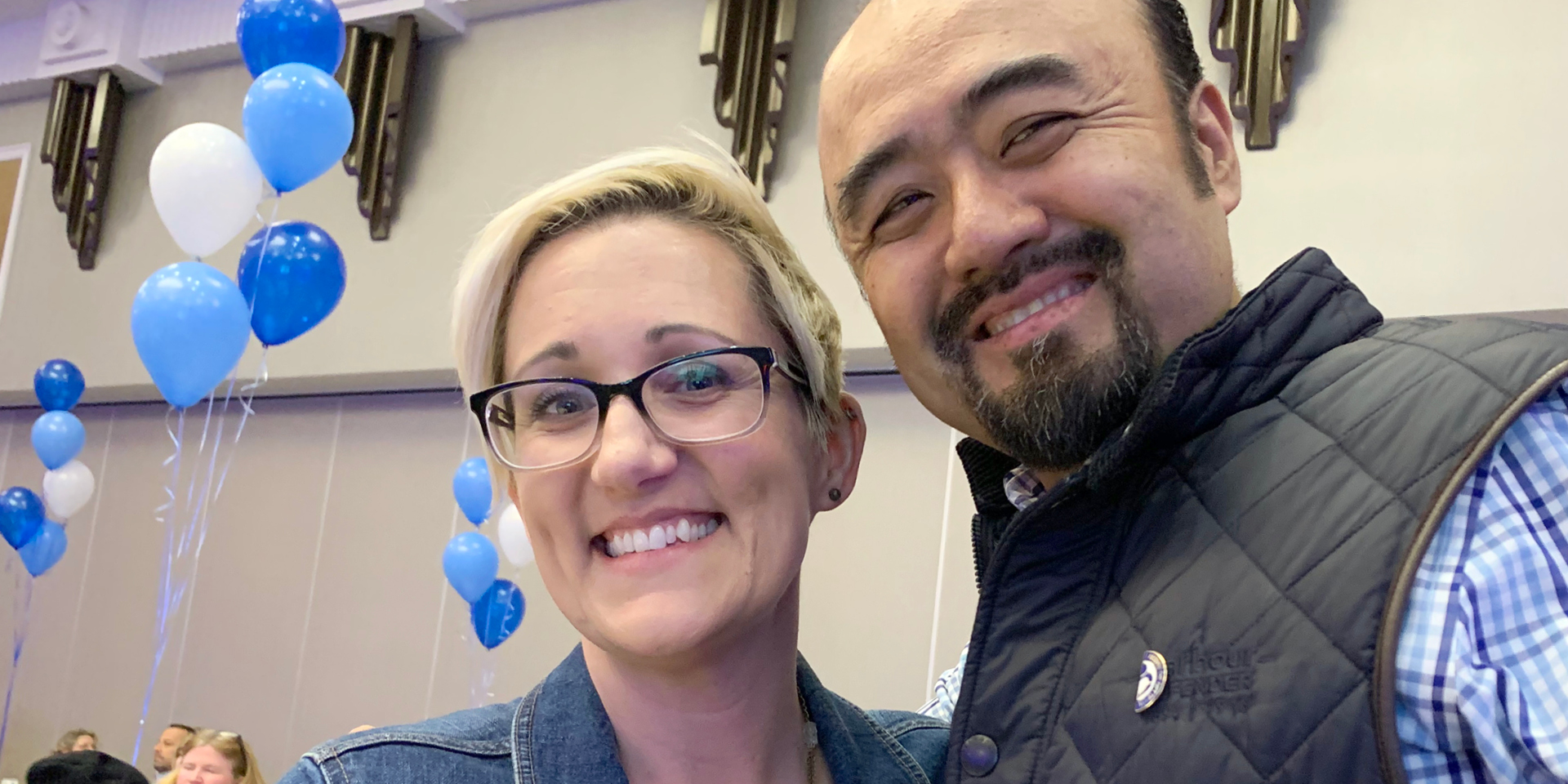April marks National Donate Life Month. More than 100,000 in the U.S. are waiting for a life-saving transplant — and about 20 people die every day waiting for an organ.
It wasn’t what she was expecting. Kelly Schmitt’s mom suddenly passed away in December 2007 (see Part One). Kelly, an only child, and her mom were close. She couldn’t imagine life without her role model. So when our medical staff informed Kelly about organ donation as an option at the end of her mom’s life, she felt like it was an extension of the way her mom lived — always giving to help others.
This selfless act inspired Kelly. Within a year of her mom’s death, she started volunteering for the group who arranged for the donation, Gift of Life, a nonprofit organ procurement organization serving the Philadelphia area.
At her first meeting with the organization, she knew she was meant to be there. “If it hadn’t been for this group... it helped me find some love and hope and peace in what happened with my mom’s sudden death. It’s really what has carried me through.”
A Friend of a Friend
Kelly’s been volunteering ever since, eventually becoming a regular speaker for the group. But in late 2018, her commitment went to the next level. That was when a friend mentioned she had a friend, whom Kelly didn’t know, who just got put on the kidney transplant list and was terrified of the prospect of what was happening. Kelly’s friend, Siobhan, wanted to know if Kelly knew of any social workers or organ donation recipients the friend might be able to speak with to get their perspective.
Luckily, Kelly knew the perfect recipient about the same age as her friend’s friend — in his early 50s. “He had a remarkable story and was feeling wonderfully. I said this is the person he needs to talk to,” Kelly says.
Then something hit her. “Before we got off the phone, I stopped and said, ‘Siobhan, I don’t know what is causing me to ask this, but what is his blood type?’”
Siobhan’s friend, Rok Hyon, had type O blood. So did Kelly. Still, she thought the likelihood they’d be a match was slim —she knew how hard it is to find one. But something was compelling her to fill out the requisite paperwork and start the months-long process of testing to see if she would be a match for Rok.
Instant Connection
Even though it was early in the process, Rok’s wife texted Kelly to thank her. “The sheer fact that someone is willing to help us gives us hope,” her text read.
A month later, the two families arranged a dinner at a restaurant. (Kelly and her husband, Mike, have a son, Ian, 15, and daughter, Lily, 12.) “My son looks at me and says, ‘You have to help this guy. This is the nicest family I’ve ever met,’” says Kelly.
After rounds and rounds of medical testing and blood draws, Kelly got the news a few months later: She was, indeed, a match. “I felt like this was orchestrated way out of my world. Like someone else is puppet-stringing this,” she says, alluding to her mom.
Then Kelly asked the transplant team if she could be the one to tell Rok’s family. They agreed.
It was Rok’s wife’s 50th birthday and Kelly wrote in a text to her, “Roses are red. Violets are blue. It’s official: I have a kidney for you!” Immediately, Rok’s wife called her back in tears and complete disbelief.
Donation Day
A month later, on June 18, 2019, Kelly and Rok had their kidney donation surgeries. Kelly donated her right kidney. “I’m in my gown waving to him down the hallway. I said, ‘I’ll see you on the flip side, my friend... And then I remember waking up.’”
During recovery at the transplant hospital, the first thing each of them asked was how the other one was doing. When they were able, they walked down the hospital hallways together chatting about their experiences.
While it takes about 24 to 48 hours for the transplanted kidneys to function, Rok’s new one started working in 12 hours. Within a few days, they both were released from the hospital.
After six weeks of recovery at home, Rok was out kayaking and biking. Kelly was at home for the same amount of time following her surgery and was back to running two to four miles at a time. She says she feels fortunate that her job as a nanny allowed her to have summers off and had a very supportive family by her side helping her get through recovery. Now she works for NKDO (National Kidney Donation Organization), mentoring potential kidney donors from across the country as they embark on their own donation journeys.
Kelly and Rok continue to keep in touch and see each other regularly. They’ve truly become family. Rok even taught her oldest son how to ski this past winter, spending hours on the slopes, which is something he couldn’t dream of doing before surgery.
“I say to everyone, ‘Rok’s my brother,’” Kelly emphasizes, smiling. “I just had to give up a kidney to finally get a brother.”
- For more information on organ donation or to register to become an organ donor, visit Gift of Life.
About Doylestown Health and Doylestown Hospital
Doylestown Health is a comprehensive healthcare system of inpatient, outpatient and wellness education services connected to meet the health needs of all members of the local and regional community. Doylestown Hospital, the flagship to Doylestown Health, has 245 beds and a Medical Staff of more than 435 physicians in over 50 specialties. An independent nonprofit health system, Doylestown Health is dedicated to providing innovative, patient-centered care for all ages.
